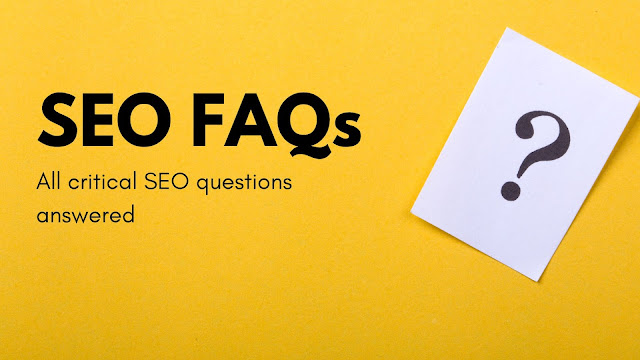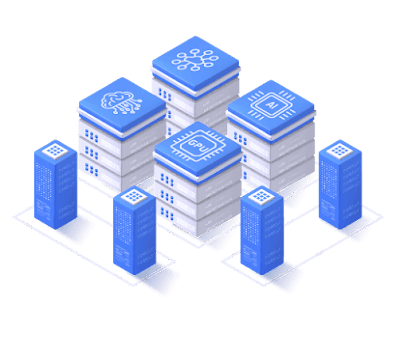FAQS related to SEO
Some frequently asked questions related to SEO:
· What is SEO?
SEO (Search Engine Optimization) is the practice of optimizing a
website's content and structure to improve its ranking and visibility in search
engine results pages (SERPs).
· Why is SEO important for a website?
SEO is important because it helps to improve a website's ranking and
visibility in search engine results pages, which can increase organic traffic
and drive more leads, sales, and revenue for a business.
· What are some best practices for SEO?
Some best practices for SEO include conducting keyword research,
optimizing on-page elements like content and meta tags, building high-quality
backlinks, improving website speed and performance, and monitoring and
analyzing website performance.
· What are some common SEO mistakes to avoid?
Some common SEO mistakes to avoid include using black hat SEO
tactics, stuffing keywords in content or meta tags, neglecting on-page
optimization, building low-quality or spammy backlinks, and not monitoring
website performance regularly.
· How long does it take to see results from SEO?
The time it takes to see results from SEO can vary based on several
factors, including the competitiveness of your target keywords, the quality of
your website's content and backlinks, and the effectiveness of your SEO
strategy. Generally, it can take anywhere from a few months to a year or more
to see significant improvements in your website's ranking and traffic from SEO
efforts.
· What is the difference between on-page SEO and off-page SEO?
On-page SEO involves optimizing the content and elements on a
website's individual pages to make them more relevant and user-friendly.
Off-page SEO involves building high-quality backlinks from other reputable
websites, social media marketing, and other tactics to increase the website's
online presence and authority.
· What is technical SEO?
Technical SEO involves optimizing the technical aspects of a website
to improve its performance and user experience. This can include optimizing
website speed, mobile responsiveness, site architecture, and other technical
elements that impact the website's performance and user experience.
· What is local SEO?
Local SEO is a subset of SEO that focuses on optimizing a website's content and structure to improve its ranking in local search results. This is particularly important for businesses that have a physical location and want to attract local customers.
· What are some common SEO tools?
Some common SEO tools include Google Analytics, Google Search
Console, Ahrefs, SEMrush, Moz, and Yoast SEO.
· What is link building?
Link building is the process of acquiring high-quality backlinks
from other websites to improve a website's authority and search engine ranking.
This can include tactics like guest blogging, broken link building, and
creating shareable content.
· What is a sitemap?
A sitemap is a file that lists all the pages on a website and helps
search engines crawl and index the site's content more effectively. It is
important for SEO because it helps search engines understand the structure of a
website and the content on each page.
· What are meta tags?
Meta tags are HTML tags that provide information about a web page's
content to search engines and other web crawlers. They include the title tag,
which provides a brief description of the page's content, and the meta
description tag, which provides a longer description of the page's content.
· What is keyword density?
Keyword density refers to the percentage of times a keyword or
phrase appears in a piece of content compared to the total number of words. It
is important to use keywords strategically in content for SEO, but overusing
them can result in keyword stuffing and a penalty from search engines.
·
Can I
do SEO on my own or do I need to hire an agency?
While it's possible to do SEO on your own, it
can be time-consuming and requires a certain level of expertise to achieve
success. Hiring an experienced SEO agency or consultant can be a good
investment for businesses looking to improve their SEO results.
· How can I measure the success of my SEO efforts?
There are a number of metrics and tools that can be used to measure the success of your SEO efforts, such as organic traffic, keyword rankings, backlink profile, and engagement metrics like bounce rate and time on site. Regular analysis and reporting can help you understand the effectiveness of your SEO strategy and make data-driven decisions to improve it.
·
Is SEO
a one-time effort or an ongoing process?
SEO is an ongoing process that requires regular monitoring, analysis, and adjustment. Search engines and user behaviors are constantly evolving, so it's important to keep your SEO strategy up-to-date and adapt to changes as needed.
·
How do
search engines determine rankings?
Search engines use complex algorithms to
determine the relevance and quality of websites and content for specific search
queries. While the exact algorithms used by search engines like Google are
closely guarded secrets, they generally take into account factors like keyword
relevance and optimization, content quality and relevance, website structure
and performance, and backlink profile.
·
What is
keyword research and how do I do it?
Keyword research is the process of identifying
the keywords and phrases that your target audience is searching for and
incorporating them into your website and content to improve your visibility in
search engine results pages (SERPs). To conduct keyword research, you can use
tools like Google Keyword Planner, SEMrush, and Ahrefs to identify high-volume
keywords relevant to your business and analyze their competition and potential
impact on your SEO.
·
What is
backlink building and why is it important?
Backlink building is the process of acquiring
links from other websites to your own website. Backlinks can help improve your
website's authority and credibility in the eyes of search engines, which can
improve your rankings in search engine results pages (SERPs). However, it's
important to focus on building high-quality, relevant backlinks from reputable
sources to avoid being penalized by search engines for low-quality or spammy
backlinks.
·
How can
I optimize my website for mobile devices?
With the increasing use of mobile devices for
internet browsing, it's important to optimize your website for mobile devices
to improve the user experience and your search engine rankings. Some key
tactics for mobile optimization include using a responsive design that adjusts
to different screen sizes, optimizing your website's loading speed, and
ensuring that your content is easily readable and navigable on mobile devices.
·
How can
I improve my website's user experience for SEO?
Improving your website's user experience can
not only help improve your search engine rankings, but it can also increase
user engagement and conversions. Some key tactics for optimizing user
experience for SEO include improving website navigation and structure, ensuring
that your content is easily readable and scannable, using high-quality images
and videos, and providing clear calls-to-action.




Comments
Post a Comment